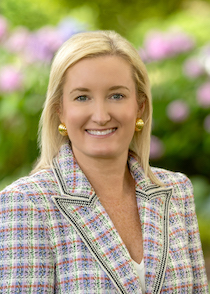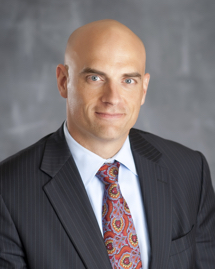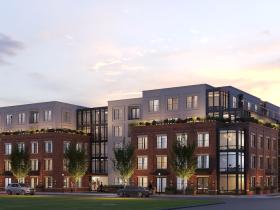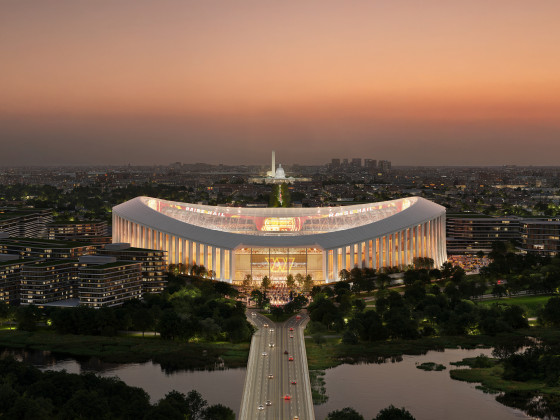What's Hot: Did January Mark The Bottom For The DC-Area Housing Market? | The Roller Coaster Development Scene In Tenleytown and AU Park
 One on One: verdeHOUSE
One on One: verdeHOUSE
✉️ Want to forward this article? Click here.
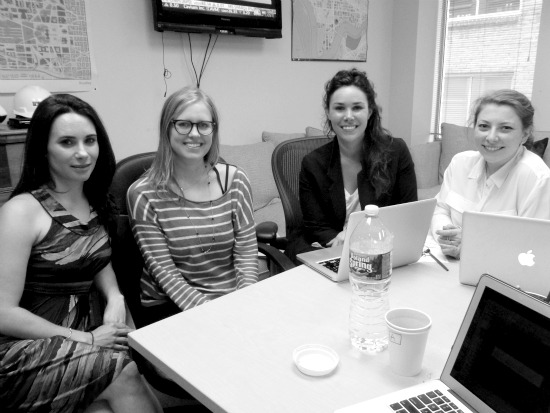
From left, verdeHOUSE’s Christin Martinelli, Ashley Fidel, Morgan Greenhouse and Margot Mausner
For this week’s One on One, UrbanTurf sat down with Morgan Greenhouse, the founder of verdeHOUSE, a firm that connects communities, artists, corporations and individuals with vacant spaces where they can throw an event. Since launching a year and a half ago, Greenhouse has grown verdeHOUSE from a one-woman operation, holding meetings at Illy Cafe, into a business with four employees and cozy office space in Dupont Circle.
What does verdeHOUSE do?
We turn vacant or underutilized property into short-term venue space. Our events help market the property and bring in a certain type of foot traffic. Getting people into the space and getting the lights on can help to generate a nice flow within the community before it becomes fully occupied.
How do you find properties and people who need event space?
On the events side, it has been through word of mouth. On the property side, we are more proactive. We still have properties coming to us, but we also want to make sure that we’re bringing on quality event spaces that meet the needs of our clients.
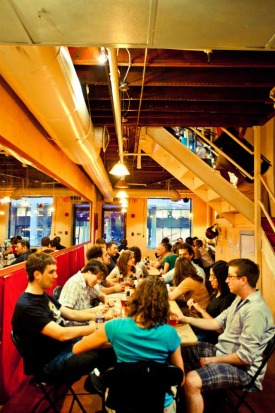
Uncurbed Party. Photo courtesy of Bonnie Sen.
How did this idea occur to you, and how has it adapted over time?
I was working at Gensler as an architectural designer and left to go to graduate school for a Masters in Architecture. In between that time, I decided to take on some projects and engage more in the arts community. I did one art event, knowing nothing about the event industry and nothing about pop-ups. We asked the owner if we could put a couple artists in his vacant retail shell on U Street; he was thrilled because of the foot traffic and the artists were excited because it was a beautiful white space for them to show their work.
After that, people started asking me if they could use the property for events. That’s when I discovered that there was an opportunity. People need space, and these vacant spaces need to be activated. I found more properties, more clients, and the business evolved.
What are some events you’ve coordinated?
One property in Dupont Circle wanted to market to the medical and tech communities. So, we hosted a Scotch event with a medical concierge company. The event brought in a lot of people from the real estate and tech communities. They came by for the Scotch, but ended up discovering this really interesting property.
Another example is Union Market. The developer, Edens, who is redoing that property [currently Florida Avenue Market], wanted to inaugurate the Union Market brand. We worked with the developer to create an all-day, family-oriented ice cream event, which hosted 17 local and independent ice cream labels. We brought in over 1,500 people to a space that otherwise wasn’t well known and was not a place families were typically drawn to.
We do both one-off events and long-term projects where we take over a vacant space and transform it for a while. These are properties that have been slated for development or they’re on the market or there’s a leasing plan in place.
[Pictured are recent verdeHOUSE events Uncurbed, a pop-up restaurant at 1134 19th Street NW with a five-course food truck tasting menu and the First Amendment Party, a pre-party for the White House Correspondents dinner hosted at the former Border’s location at 1801 K Street NW.]
What’s your relevant background?
While in architecture, I engaged quite a bit with the real estate community in DC. My business partner [Christin Martinelli] is also an architect by trade. When we’re assessing and transforming properties, our architectural knowledge has been an invaluable skills set, from a regulatory perspective to a structural perspective to a simple systems [plumbing, electricity, etc] perspective. We’ve learned over the past year how to really identify and understand a usable vacant space.
Can you talk about your business model?
Like you would pay for a typical venue, our consulting fee includes the real estate, our knowledge of the property and our coordination. We insure it, we help with the contract…basically you get real estate with venue services. That’s our main revenue stream.
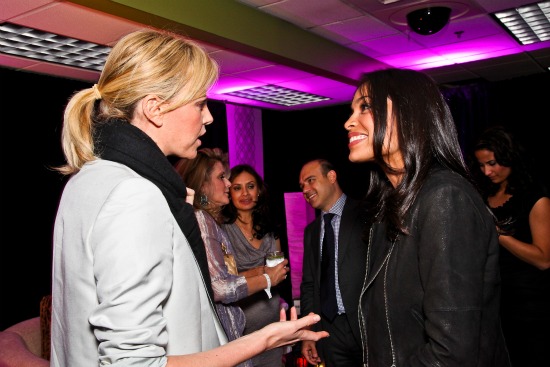
First Amendment Party. Photo courtesy of Tony Powell.
What does a typical day look like?
A lot of my time is spent communicating with property owners and event hosts in the initial stages of generating events and spaces. The other chunk of time is spent developing the business. I work really closely with Christin on operations to make things systematic and efficient and to create standard practices.
Every day is different. I’m always in different parts of the city, meeting a new non-profit or maybe the head of a museum who wants a pop-up, or engaging with city officials or developers.
Do you ever work with Popularise?
Yes, quite a bit! We just worked with them on the ReadysetDC Fashion District event, and we have plans to do a lot more with them. Our goals are extremely complementary. They want long-term development for vacant spaces, and what they are doing to get that development aligns very nicely with what verdeHOUSE does.
Right now, you can personally visit every space. As verdeHOUSE grows, how do you replicate yourself?
We could have a team that’s doing exactly what I’m doing, but that requires creating a kit of parts that works really well together. Until we do that, we just want to make sure that we continue to provide high quality space and service.
Similar Posts:
See other articles related to: one on one, vacant spaces, verdehouse
This article originally published at https://dc.urbanturf.com/articles/blog/one_on_one_verdehouse/5493.
Most Popular... This Week • Last 30 Days • Ever

Rocket Companies is taking a page from the Super Bowl advertising playbook with a spl... read »

As mortgage rates have more than doubled from their historic lows over the last coupl... read »

The small handful of projects in the pipeline are either moving full steam ahead, get... read »

The longtime political strategist and pollster who has advised everyone from Presiden... read »
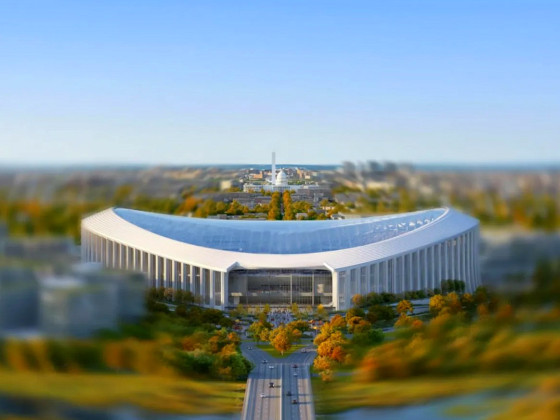
Column critique for Commanders stadium; more love for Eebees; and why just building m... read »
DC Real Estate Guides
Short guides to navigating the DC-area real estate market
We've collected all our helpful guides for buying, selling and renting in and around Washington, DC in one place. Start browsing below!
First-Timer Primers
Intro guides for first-time home buyers
Unique Spaces
Awesome and unusual real estate from across the DC Metro

